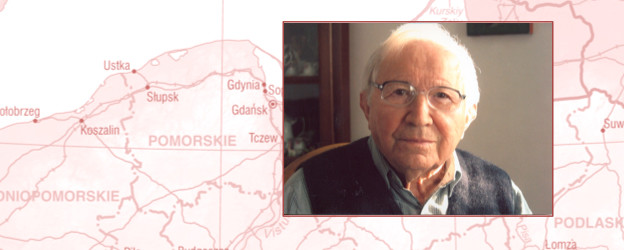Grzegorz Wróblewski and Różewicz

In the interview published last year in this magazine, Polish poet, writer, and dramatist Grzegorz Wróblewski refers to Różewicz as a “great poet” and “genuine innovator.” It would be accurate to say that much of his own poetry, which he has been writing since the early 1980s, builds on Różewicz’s example. In many of his poems Wróblewski adopts an austere and straightforward style. He shuns literary ornamentation and traditional forms (even though, unlike his predecessor, he usually follows the rules of punctuation and capitalization.) In terms of philosophical outlook, he gravitates toward existentialism that verges on nihilism. He writes about alienation, anxiety, failure of communication, loss of identity. Although he lacks Różewicz’s firsthand experience of war, he often records the violence and cruelty of the modern world. In this respect, we can consider him a reluctantly moral poet.
Take, for example, the early poem “Decline,” which mixes religious orthodoxy, political ideology, and apocalyptic motif in the form of public communiqué. Or two Copenhagen tableaux from the 1990s, “The Reading Room in Christianshavn” and “A Conspiracy,” which draw an uncomfortably thin line between normal and abnormal human behavior. A later poem “Ostrich Farm” echoes Różewicz’s 1947 classic “The Survivor”; eschewing autobiography, it laments the wholesale devaluation of life at the animal level. “Light in the Cathedral,” written in 2009, shows Wróblewski at his most personal. Yet even here the tone is restrained, to underscore the theme of isolation and misunderstanding.
Wróblewski pays direct homage to Różewicz in one of the prose poems included in Kopenhaga (Zephyr Press, 2013):
There is something strange and indecent about people who suddenly dispose of their libraries. Recently, the well-off R. appeared at my door with a carton of books; he is moving and there is no space for them in his new apartment (which is probably larger than the previous one). This is how Formy [(1958)] by Tadeusz Różewicz […] ended up in Christianshavn. Last sentence of the volume: Through all this din we walk toward silence, toward explanation.
Remarkable in itself, the line from Różewicz can also serve a useful motto by which to read much of Wróblewski’s own work. Echoing the tumult of contemporary civilization, as well as his personal turmoil, it searches for final stillness and clarity.
Edited byMarit MacArthur Kacper Bartczak